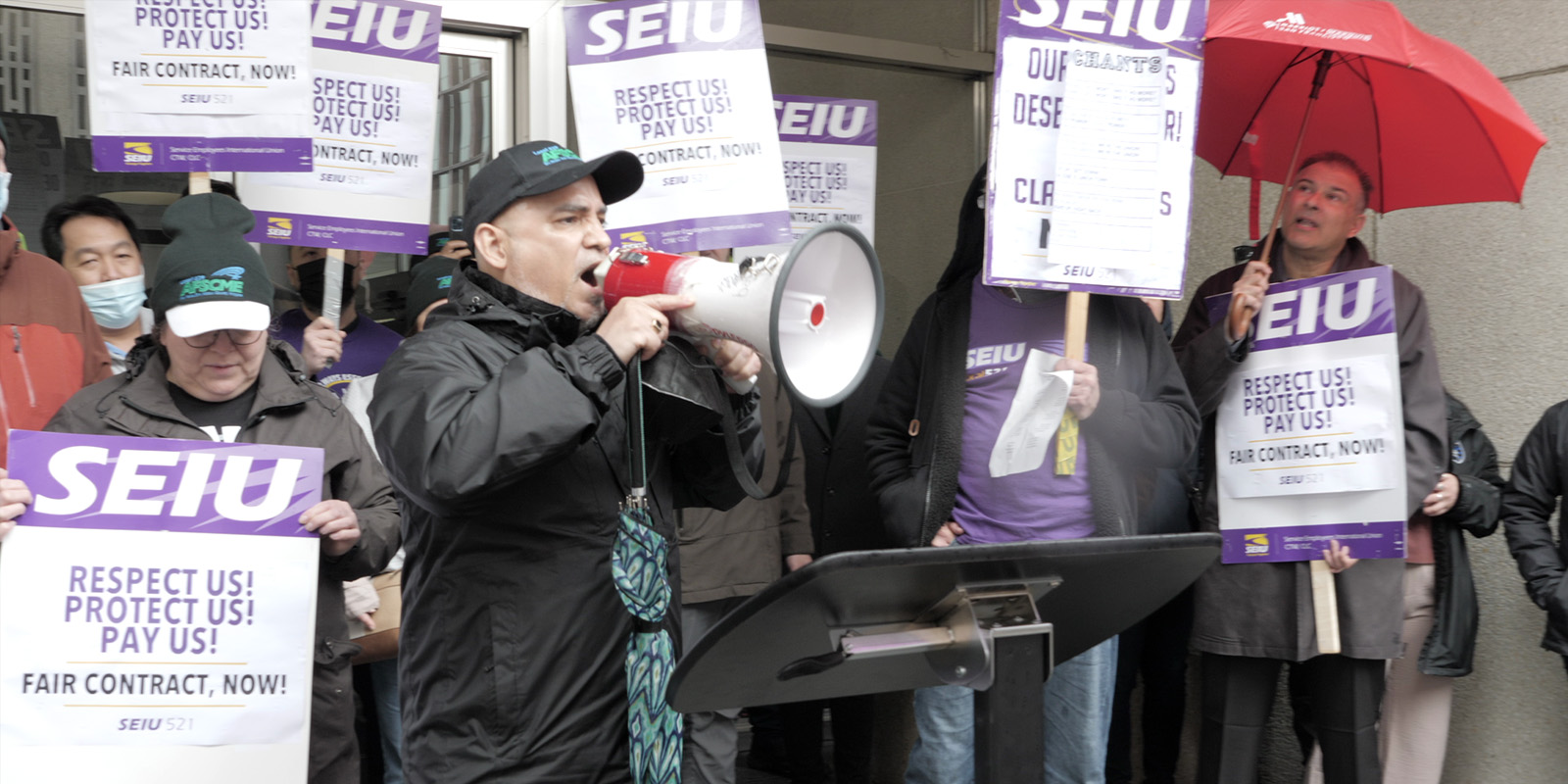REDWOOD CITY, Calif. – About 100 “extra help” workers amassed in front of the San Mateo County government center last week to demand changes to the county’s exploitative labor system.
Members of AFSCME Council 57 and SEIU Local 521 demanded that the San Mateo County Board of Supervisors resolve the harsh socioeconomic realities facing extra help workers by ending the county’s two-tiered labor class system — one for permanent staff and another for extra help, or “flex” employees.
Members say county administrators have created a second-class labor system that strips front-line extra help workers of basic rights to negotiate their wages, and leaves them with few options for health benefits, retirement or paid vacations. Extra help workers who are part of AFSCME Local 829 (Council 57) and SEIU Local 521 want to overhaul a system that prevents them from accessing basic rights and privileges full-time county workers enjoy — despite delivering identical public services.
According to the county, extra help workers are temporary employees who are used mostly to staff seasonal assignments and help out “during brief periods of heightened workloads.” They generally can’t work more than 1,040 hours; additional time must be approved by the county. While these workers are eligible for the county-sponsored medical plan, they have no retirement benefits.
“We ask the Board of Supervisors to show us that they support the hard working men and women who make San Mateo County happen. We’ve waited a long time for fairness and equality. We can’t wait anymore,” said Gabe Maldonado, a care counselor and a 29-year extra help worker who also is a member of AFSCME Local 829.
Workers point to high turnover, short staffing and strained county resources and services as evidence of the public service crisis created by San Mateo County management. This dynamic perpetuates a second-class labor system that denies basic rights to negotiate wages, receive full benefit coverage and retirement for extra help workers – hundreds of employees who do the same work as their full-time colleagues.
“Extra help workers have no more than three sick days a year. That is unacceptable. County workers who live and work in the county deserve a pathway to permanency. We must also stop the union busting at the San Mateo County Board of Supervisors and ensure that our contracts are aligned with permanent workers,” said Mullissa Willette, president of SEIU Local 521. “San Mateo is the only outlier [in the Bay Area] that treats its workers this way.”
AFSCME Council 57 is comprised of 26 local unions and 35,000 workers throughout Northern California and the Central Valley. Members work in schools, community colleges, transit agencies, public works and services, clinics and hospitals, water and wastewater facilities, and serve as health and social service professionals in corrections facilities across California.
